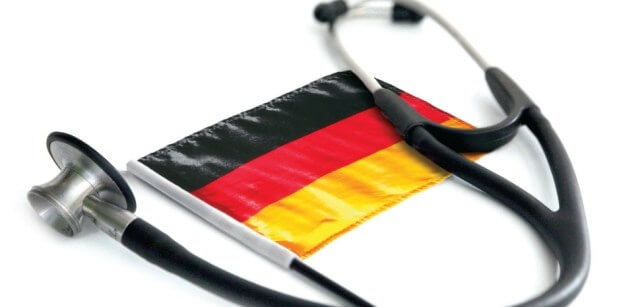Germany is widely regarded as one of the best countries in the world when it comes to healthcare. With a combination of excellent medical facilities, highly trained professionals, and a robust health insurance system, Germany is a great destination for those seeking high-quality healthcare.
In this blog post, we’ll take a closer look at the healthcare system in Germany, including how it works, what services are offered, and how to access healthcare as an expat or foreign visitor.

How the Healthcare System Works
The healthcare system in Germany is a complex network of public and private providers, with the vast majority of Germans relying on statutory health insurance (SHI) for their healthcare needs. SHI is a government-regulated health insurance scheme that covers around 85% of the population. The remaining 15% of Germans are covered by private health insurance (PHI).
Under the SHI system, individuals contribute a percentage of their income towards their health insurance, with employers also required to make contributions on behalf of their employees. In return, SHI covers a wide range of medical services, including doctor’s visits, hospital stays, and prescription medications.
Private health insurance is also available in Germany, and it’s typically more expensive than SHI. PHI policies offer a wider range of benefits and higher-quality care, but they’re generally only available to those with high incomes or who work in certain professions.
Services Offered
The German healthcare system offers a wide range of services, including:
Primary Care: The first point of contact for most Germans seeking medical care is their local general practitioner (GP). GPs are the gatekeepers of the healthcare system and are responsible for providing basic medical services, such as routine check-ups, referrals to specialists, and prescription medications.
Specialist Care: If a GP determines that a patient needs more specialized care, they can refer them to a specialist. Germany has a wide range of medical specialists, including oncologists, neurologists, and cardiologists.
Hospital Care: If a patient requires hospitalization, they’ll be admitted to one of Germany’s many public or private hospitals. Inpatient care is covered by both SHI and PHI.
Dental Care: Dental care is an important part of the German healthcare system, with most Germans visiting their dentist twice a year for routine check-ups and cleanings.
Pharmacies: There are thousands of pharmacies located throughout Germany, where patients can fill their prescriptions and purchase over-the-counter medications.
Mental Health Services: Germany also offers a range of mental health services, including counseling, therapy, and medication.
Accessing Healthcare as an Expat or Foreign Visitor
If you’re an expat or foreign visitor in Germany, you’re entitled to the same level of healthcare as German citizens. However, accessing healthcare in Germany can be a bit more complicated for non-German speakers.
To access healthcare in Germany, you’ll need to obtain health insurance. If you’re employed in Germany, you’ll automatically be enrolled in SHI. If you’re self-employed or not working, you’ll need to purchase health insurance from a private provider.
If you’re visiting Germany from another country, you’ll need to purchase travel health insurance to cover any medical expenses you may incur while in the country. It’s also a good idea to familiarize yourself with the German healthcare system before you arrive, so you know what to expect.
One of the challenges of accessing healthcare in Germany as an expat or foreign visitor is the language barrier. Most doctors and medical staff in Germany speak English, but it’s always helpful to have a basic understanding of German medical terminology.
If you do need medical assistance while in Germany, it’s important to know where to go. For minor illnesses or injuries, you can visit a local pharmacy or a general practitioner. For more serious medical emergencies, such as a heart attack or stroke, call the emergency number 112 for an ambulance. Germany also has a network of specialized hospitals, called “Maximalversorgungskrankenhäuser,” which are equipped to handle complex medical cases.
It’s also important to note that healthcare in Germany can be quite expensive, particularly for those without health insurance. If you’re a non-EU citizen, you may also be required to pay upfront for medical services, even in emergencies.

To avoid these costs, it’s essential to obtain health insurance before arriving in Germany. If you’re an EU citizen, you may be able to use your European Health Insurance Card (EHIC) to access healthcare in Germany. However, it’s important to note that EHIC coverage is limited and may not cover all medical expenses.
Overall, healthcare in Germany is widely regarded as one of the best in the world. With a comprehensive healthcare system that covers a wide range of medical services, highly trained medical professionals, and a strong focus on preventative care, Germany offers excellent healthcare services for its citizens and residents.
If you’re planning on living or traveling to Germany, it’s important to familiarize yourself with the healthcare system and obtain health insurance to avoid any unexpected medical costs. By taking the necessary precautions, you can rest assured that you’ll have access to high-quality healthcare in Germany.


